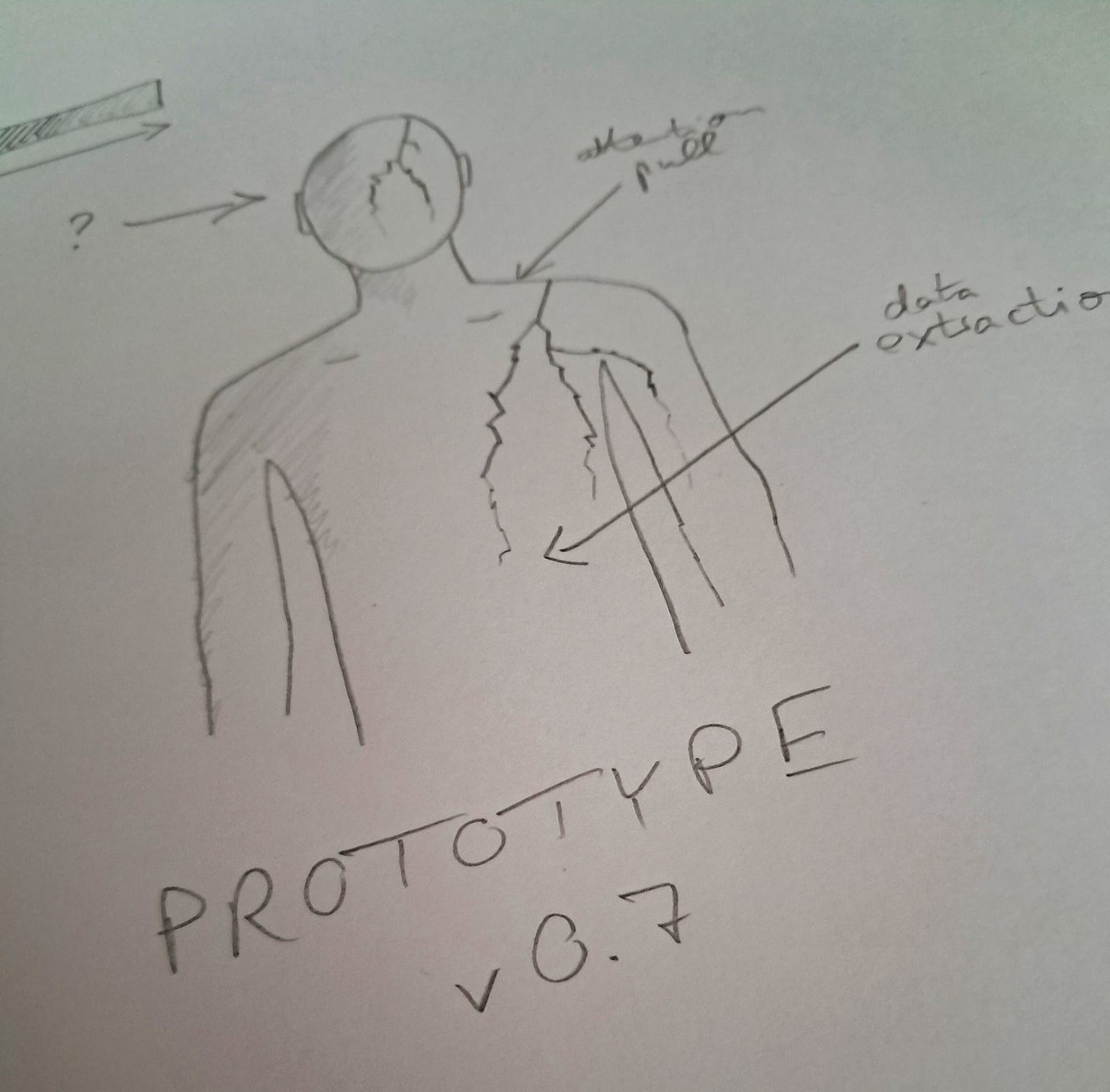Living in beta
This article is about testing, tuning, and being lived by the systems you use
You’ve probably heard it before, this popular saying in tech: “If you’re not paying for the product, you are the product.”
But what if that’s outdated?
What if we’re not even the product anymore – but we’re the prototype?
We’re the things being tested, measured, tuned, updated. We’re not the end goal, not the thing being desired, we’re merely the experiment.
The prototype life
Our apps update weekly. Our dashboards track “engagement.” Our devices feed back into development cycles, quietly turning everyday choices into behavioral design.
We are ruled over, we are lived by the systems we think we’re using.
In my novel “Androids, Dreaming”, protagonist Ruth gets hired to write whitepapers. But half the time (most of the time?), the products don’t exist yet. They’re ideas looking for narrative, markets looking for meaning, potential functionality waiting for funding.
In that sense, every user is just a prototype of the platform’s or system’s idea of a user, of the ideal user maybe. Every early adopter is just a test case that might not survive the rollout.
We don’t burn out
The tests that are run on us:
how much attention can be pulled before fatigue sets in
how much data can be extracted before trust evaporates
how much friction users will tolerate before giving up
And when we break, emotionally, mentally, economically, we’re told we “burned out.”

But no, we haven’t. We have just hit the edge of the prototype’s stress test.
Fiction as resistance
What I’ve found in fiction – both as a writer and a reader – is that story allows you to say what the the whitepaper, the manual, the mission statement cannot. Where the roadmap smooths over friction, fiction lingers in it. Where design anticipates ideal users going through ideal flows, making only ideal mistakes, narrative lets the user go off-script.
In a story, the app can glitch without being instantly fixed. The system can fail – not as a bug, but as a turning point. You can follow someone who uninstalls, quietly. Who walks away, not with outrage maybe, but with fatigue.
Who maybe even grieves the time they spent trying to make it work – the updates, the sync errors, the unread privacy policies – because that time could have been spent on actual living. And who decides, one quiet morning, to start again. Without it.
This is where the real story lives: in the small departures, the moments of dissonance, the soft refusals that don’t make the metrics. Fiction makes room for those exits. It doesn’t optimize them away, it honors them.
Because sometimes, resistance doesn’t look like protest. Sometimes it looks like a character closing the laptop and choosing to feel something unfiltered. Or saying “no” – not publicly on some platform, but in the privacy of their own mind. Fiction knows that’s still a story, even if no one clicks on it (today).
So what if…
We stopped optimizing ourselves for systems that call us “users” but treat us like specimens?
We asked not how to perform better in the interface, but whether the interface deserves us?
We remembered that prototypes are meant to be imperfect?
We’re not the product and not the prototype either. We’re the protagonist. And we get to say: This story goes a different way.

